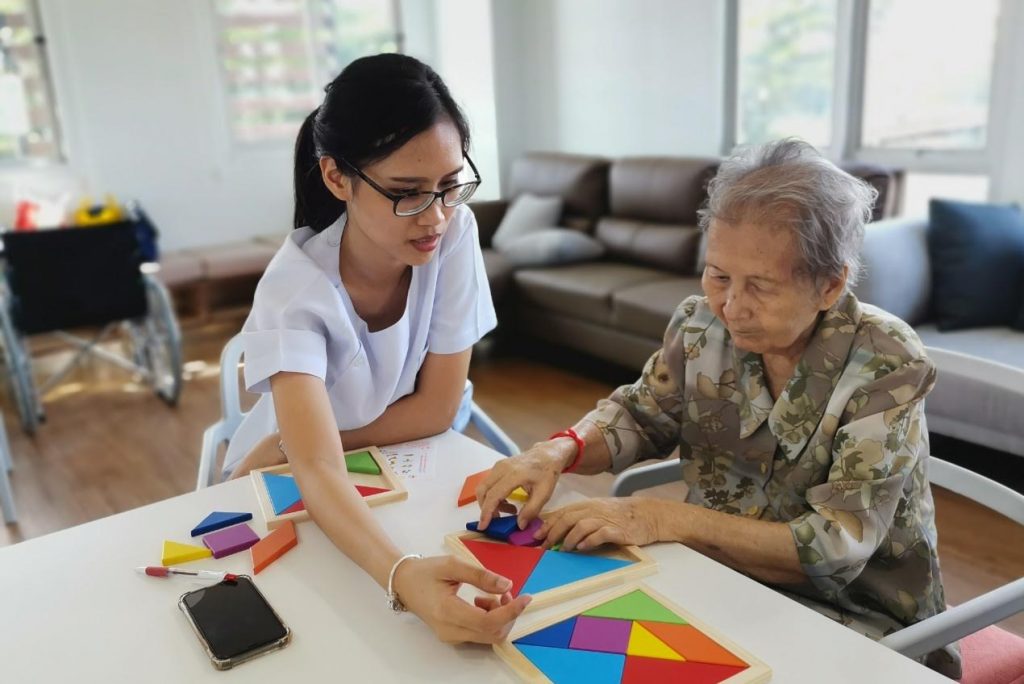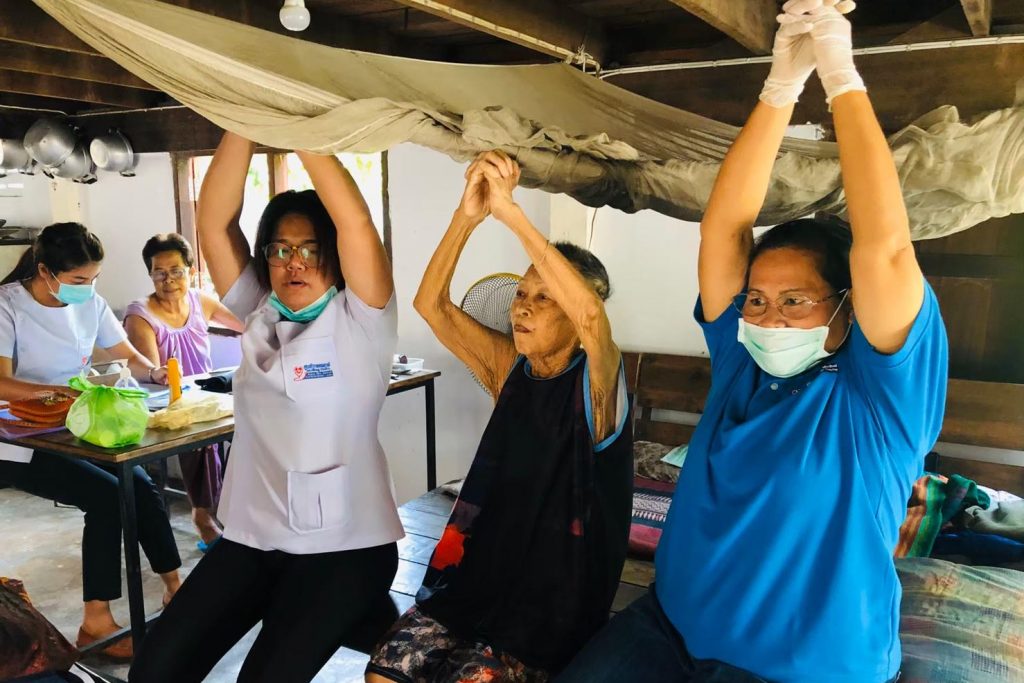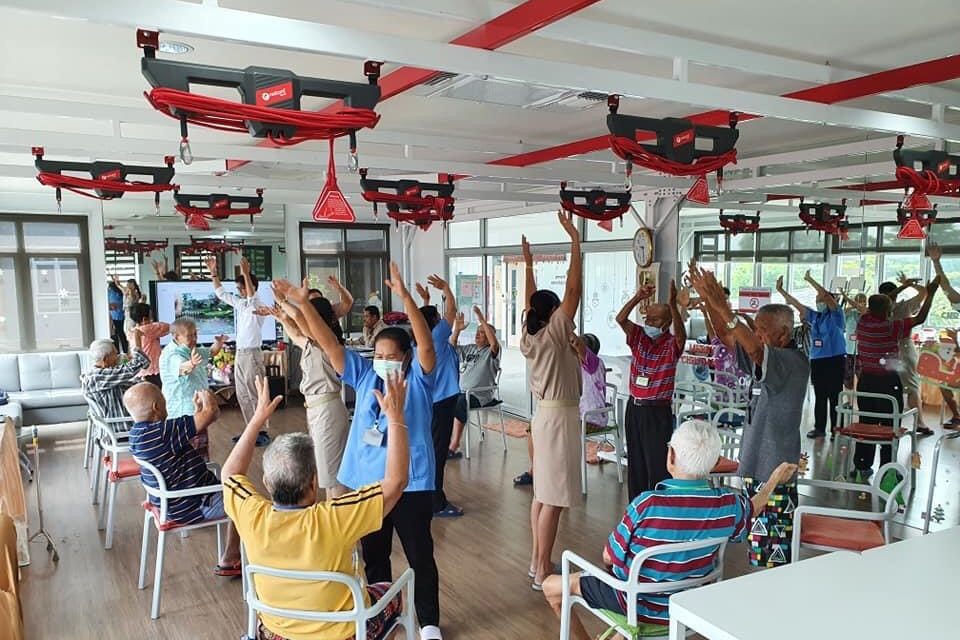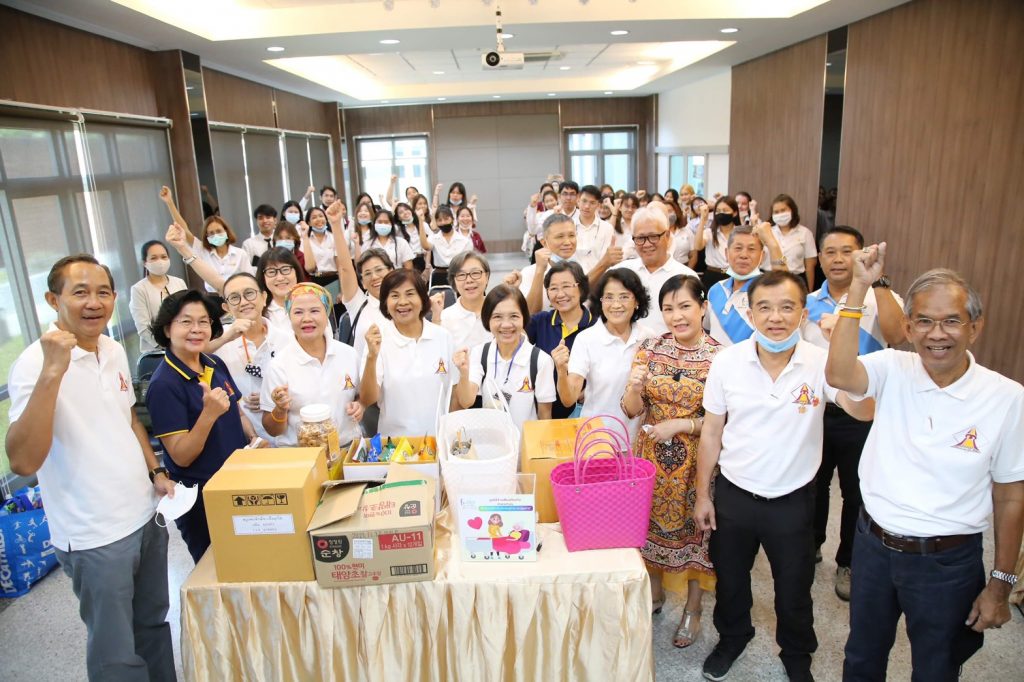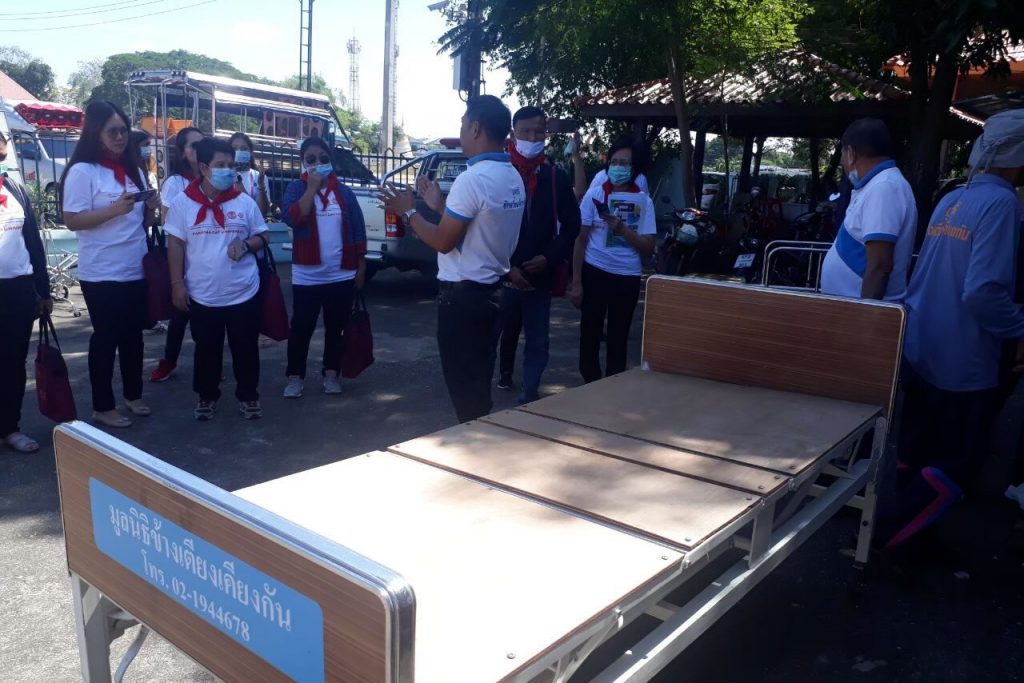2021 HAPI Grand Prize Winner
Community involvement is critical in supporting healthy aging and improving the ability of older people to age in place. The role of community care is even more vital in countries such as Thailand, which do not have long-term care insurance and where many people do not have a pension to draw on to support themselves as they age. A key aspect of successful community-based care models is ensuring that they meet the specific needs of the community they serve and that they are integrated with other services to ensure that no one is left behind. In Thailand, developing integrated and comprehensive care for older people is particularly challenging because while care for bedridden patients is typically handled by the central government, community programs for active older adults are run at the municipal level. This not only creates a disconnect, but it also leaves out services for frail older people.
The local government in Bueng Yitho, a municipality situated about 20 kilometers outside of Bangkok, noticed that the services they were offering at their medical and rehabilitation center and their community center were underutilized and were not meeting residents’ needs. In 2013, the municipality worked with the Faculty of Social Administration at Thammasat University to carry out a survey, which found that older residents there needed somewhere to go each day and they needed more activities. They have also worked with Nogezaka Glocal (a Japanese NGO) and Yugawara Municipality to learn from Japanese models of community-based care. As a result, they have developed an innovative program that emphasizes community engagement to create an integrated cycle of services to better meet the needs of a wider range of their residents.
The first step was the establishment of three Quality of Life Development Centers for older persons. A small membership fee is required to encourage a greater sense of ownership and engagement and to help sustain the programs. Activities include everything from dance classes and aquatic exercise to computer lessons and karaoke, and the municipality works with the members to recruit teachers and trainers. Promoting healthier behaviors and self-management of health are a major objective, and the more than 2,000 members of the centers have shown positive outcomes to date in terms of improved self-awareness and health behaviors. In 2018, this program came to be known as the STRONG Program, with STRONG standing for Socialization, Treatment, Recreation, Opportunity, Nutrition, and Group.
The results of the programs were monitored, and feedback was used to adjust the types of services offered. The target audience was broadened as well, and the members at the centers began taking more active roles. The STRONG Program encourages residents to participate in the planning, implementation, and monitoring of STRONG programs. In other words, it went from a top-down to a bottom-up approach in providing these services, or what they refer to as “dynamic value co-creation.” As Mr.Rungsarn Nuntakawong, Mayor of Bueng Yitho, points out,“People in the community know that STRONG belongs to them. They own the services and I think that is why the STRONG program gives people motivation—the motivation to take care of themselves, to take care of others, and to take care of our own community.”
This has been accomplished through community surveys, brainstorming sessions, and the creation of a community committee that brings together representatives from elderly clubs, the municipality, and volunteers working on the programs.
In 2019, a day care and day service center was added to assist older persons who do not have caregivers at home. The caregivers working there are active older persons who have participated in the STRONG Program, some of whom are volunteers in the community, and they serve as role models who encourage others to get involved. The services there combine rehabilitation and other activities to improve users’ ability to carry out daily activities. Furthermore, a fourth Quality of Life Development Center was also established in the same building to offer day care and day services. Another aspect of the innovation is the creation of the donation-based Bed Side Loving and Caring Foundation, which provides home care and medical devices for older adults who have become bedridden, helping to improve their quality of life. This foundation is managed by a committee that has members both from the community and the municipality.
In recognition of their excellent work developing an integrated bottom-up continuum of care for older people, the STRONG Program was awarded the 2nd Prize in the 2020 Healthy Aging Prize for Asian Innovation. Since that time, Bueng Yitho has expanded their ambitions for the program to create a framework for disseminating their model, encouraging other Thai municipalities to adopt STRONG. This led to the establishment of a training center in cooperation with Thammasat University in October 2020 and to the signing of a cooperative agreement with Thap Ma Municipality later that year. Bueng Yitho plans to continue to expand this network and close to 2,000 people have visited Bueng Yitho to learn more about their work between October 2019 and January 2021, demonstrating that there is substantial interest in their program.
Bueng Yitho is maintaining their bottom-up grassroots approach when it comes to the framework for spreading STRONG, which has a number of benefits. Rather than relying on the central government, they are relying on their network with other local governments. In much the same way that community members in Bueng Yitho became invested in STRONG, this approach ensures that local governments can feel ownership over the program, customizing the program to meet their community’s needs, rather than acting merely as participants in a pre-defined program. It also means they are not reliant on national-level policy or funding to implement the programs. Finally, it creates a mechanism for local governments to share lessons directly with each other and to collaborate on improving their programs. In light of these expanded initiatives, Bueng Yitho was awarded the Grand Prize in the 2021 round of the Healthy Aging Prize for Asian Innovation.
KEYS TO SUCCESS
- Integrated approach to services for older people that provides a continuum of care for those with a wide range of different needs
- Bottom-up community approach that has taken input from the community to ensure their participation and investment in the program
- Partnerships at both the local and international level with academics, other municipalities, and NGOs
- Sharing their innovation through local government networks allows STRONG to be replicated and adapted to other communities without reliance on national-level policy or funding


